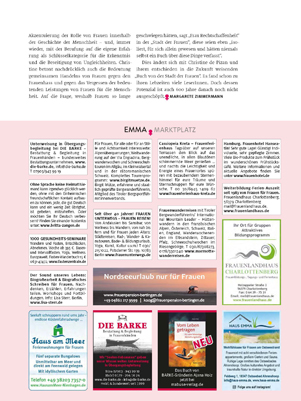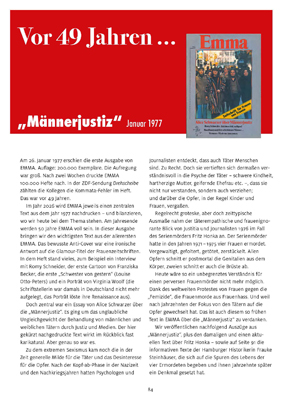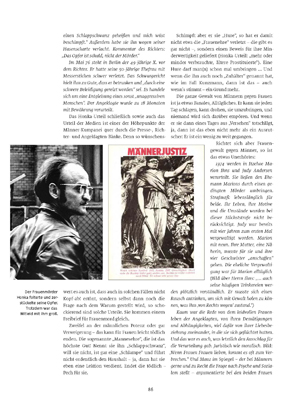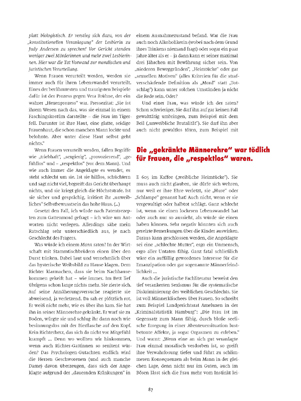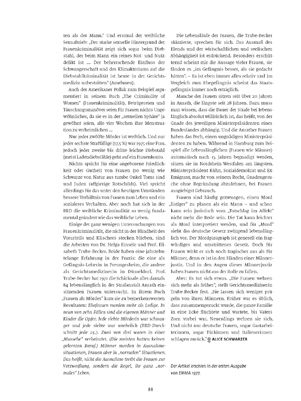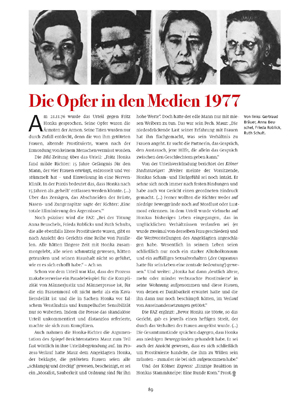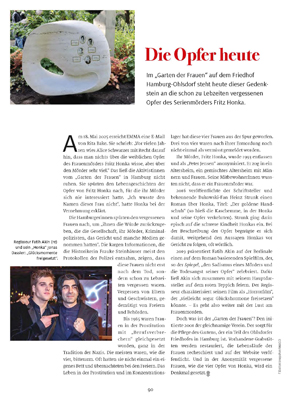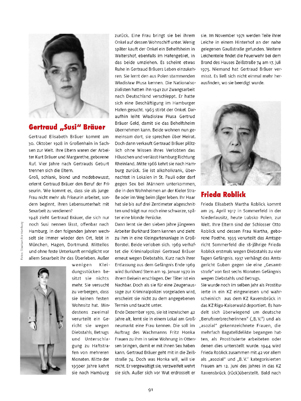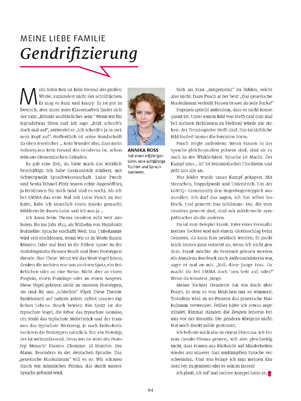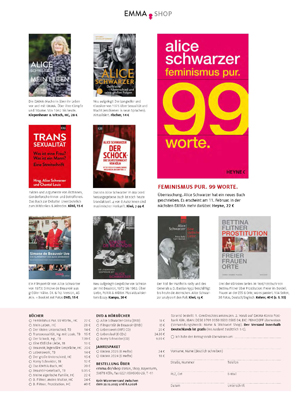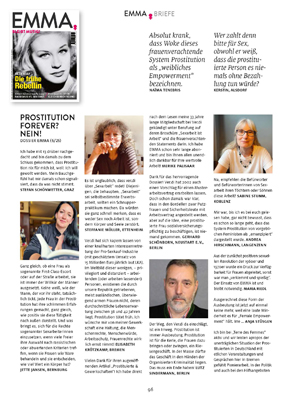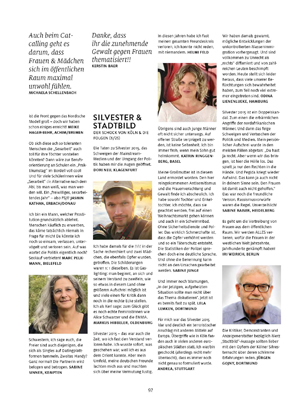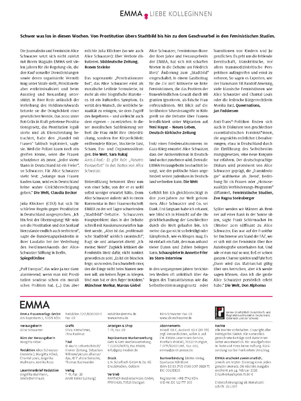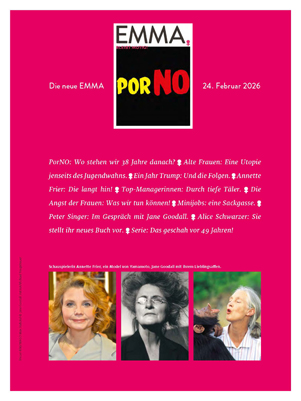Obligation to seek peace
The war in Ukraine is now entering its second year without any attempt being made to find a peaceful solution. Instead of initiating peace talks, the warring parties have become further entangled in a dangerous spiral of military escalation by deploying of ever more powerful weapon systems. As if still stuck in the belligerent thinking of the first half of the 20th century, they hope that large-scale military offensives and a military victory could bring them the sought for peace. In the process, this will only further destroy Ukraine. But an even more dangerous consequence is that the prestige of the world's two largest nuclear powers hangs on the outcome of such military offensives. This increases the risk of a direct confrontation between the nuclear powers USA and Russia – hence two countries that possess about 90% of all nuclear weapons in the world.
After WWI and WWII, this would be the third time that a war that started on European soil could turn into a world war – only this time with potentially more devastating consequences. Already now, people around the world who have nothing to do with this war, suffer its economic consequences; a nuclear war could wipe out all people, regardless of whether they belong to a warring party or not. Thus, a situation has arisen that our forefathers had wanted to prevent through the UN Charter.
The Preamble of the UN Charter states that "We the peoples of the United Nations (are) determined to save succeeding generations from the scourge of war, which twice in our lifetime has brought untold sorrow to mankind…” Unfortunately, this appeal of the UN Charter seems forgotten today. Especially, the original founding members, and hence supposed protectors, of the UN Charter, the US, UK, France and now also Russia, have repeatedly eroded its principles for their own political aims or, indeed, ignored it altogether. As permanent members of the UN Security Council with a veto power they were in a position to do this. In the Ukraine war, these four veto powers have now become direct adversaries, making a mockery of the UN Charter meant to prevent such wars. They thus bear primary responsibility for this war and its consequences vis-à-vis humanity.
The UN Charter’s primary call is to seek peaceful solutions
A constantly repeated argument in the West is that Russia's war of aggression against Ukraine is illegal under international law and that Ukraine thus has not only the right to defend itself, but also the right to ask other states for help in defending itself. This is indisputable, as this conclusion is based on the principles of the UN Charter. But does the UN Charter thereby also give the West the right to continue this war at will, to seek a military victory over Russia and to refuse all peace efforts on these grounds? Certainly not!
The reason is that the UN Charter is an agreement among all member states to resolve their conflicts peacefully; the ban on the use of military force for political ends is based on this - and not vice versa. The UN Charter is hence not a global ceasefire agreement, but the obligation for all member states to guarantee global peace by peaceful means. It is this aspect in which the UN-Charter breaks with a military logic of the past that has led to so many wars, especially in Europe. If today it is again argued that peace can only be achieved by force of arms - hence by war - this is a throwback to the militaristic thinking from before the UN Charter.
The UN Charter states as its main task "To maintain international peace and security, and to that end: to take effective collective measures for the prevention and removal of threats to the peace, and for the suppression of acts of aggression or other breaches of the peace, and to bring about by peaceful means, and in conformity with the principles of justice and international law, adjustment or settlement of international disputes or situations which might lead to a breach of the peace…”. And then more explicitly: "All Members shall settle their international disputes by peaceful means in such a way that international peace, security and justice are not endangered".
The Charter obligation to resolve conflicts peacefully exists not only to prevent wars, but also to find ways out of wars. For example, the UN General Assembly resolution of 2 March 2022, which strongly condemned Russia's military intervention, calls not only on Russia and Ukraine but on all states involved to find a peaceful solution to the Ukrainian war: "the General Assembly urges the immediate peaceful settlement of the conflict between the Russian Federation and Ukraine through political dialogue, negotiation, mediation and other peaceful means.“
In many ways, the UN Charter is superior to today's dominant black-and-white view of a world between good and evil, or even between supposedly democratic and authoritarian states. The UN Charter does not use terms such as war of aggression, preventive war, anti-terrorist war or even humanitarian war. It does not distinguish between the respective political systems of the member states, nor does it distinguish between justified and unjustified points of contention between the parties to a conflict. The UN Charter assumes that there are always two sides to every conflict, but that they must be reconciled by peaceful means. Applied to the Ukraine war, any conflict between Russia's security interests and those of Ukraine should have been resolved through negotiations. The West’s refusal to accept Russia’s security concerns as legitimate and now is refusal to negotiate a peaceful solution to the conflict has made it complicit in the war in Ukraine.
The West's complicity in the Ukraine war
The seriousness of the escalating conflict over the expansion of NATO to Russia's borders, which has now led to war, has been evident to all parties since at least 1994. Russia has warned time and again that admitting Ukraine and Georgia to NATO would violate its elementary security interests and cross a red line. This would be a classic conflict that should - and probably could - have been resolved diplomatically in accordance with the UN Charter. But this did not happen, neither to prevent a war nor to achieve a peaceful outcome to the war once it had begun. This, too, is a breach of the UN Charter.
Ignoring Russia’s concerns, Ukraine's accession to NATO was systematically pursued. This went not on withot repeated provocations. The West did not even shy away from supporting the violent overthrow of a legitimately elected (OSCE) Ukrainian president in 2014 in order to install a government favorable to NATO accession. According to Victoria Nuland, now US Deputy Secretary of State, the US had funded this overthrow to the tune of $5 billion; in reality, this may have been a much higher amount. Also this is a gross violation of the sovereignty of a UN member and thus a breach of the UN Charter.
After the recent statements by Angela Merkel and Francois Holland about the Minsk I and Minsk II agreements, the question arises whether these were negotiated in 'good faith' or served the only purpose of gaining the time necessary for the military build-up of Ukraine. Since these agreements became legally binding through the decision of the UN Security Council, this would be a shocking travesty of any international law.
When in 2021 Russia responded to NATO's decision to move ahead with Ukraine's NATO accession by massing troops on its border with Ukraine, it made a new attempt to reach a peaceful resolution. This led to a series of diplomatic activities, but the West categorically rejected any talks about Ukraine joining NATO. The Ukrainian government even responded in February 2022 with what were the most massive bombardments of the pro-Russian rebel-held Donbas and its civilian population.
Even after the war broke out, NATO, especially the USA and UK, torpedoed all peace efforts. Already in the first week of March 2022, the then Prime Minister of Israel, Naftali Bennet, tried to mediate a ceasefire between Russia and Ukraine. According to his recent interview, Russia and Ukraine showed great interest in ending the war quickly and a ceasefire was in Bennet’s words "within reach". But it did not come to it, because, as Bennet explained, "they (the US and UK) blocked a ceasefire, and I thought they were wrong".
The more important peace efforts were the Ukrainian-Russian peace negotiations. In the third week of March 2022, just one month after the outbreak of the war, both sides had managed to settle on an outline for a comprehensive peace agreement: the Ukraine would agree not to join NATO and not to allow any military bases of foreign powers on its territory, while Russia would in return agree to recognize Ukraine's territorial integrity and to withdraw all Russian occupation troops. Special arrangements were foreseen for the Donbas and Crimea. A peace conference planned for 29 March 2022 in Istanbul, was intended to negotiate the remaining questions (such as security guarantees) in the hope of arriving at draft peace treaty. But then Ukraine withdrew from the peace negotiations under pressure from the USA and the UK. Turkish Foreign Minister Çavuşoğlu would later say about the failed Istanbul peace conference: "some NATO countries wanted the war in Ukraine to continue in order to weaken Russia".
How many lives, how much sufferings and how much destruction could have been avoided if NATO had thrown its weight behind the Ukrainian-Russian peace efforts in March? It was, after all, what Ukraine had then wanted. Instead, NATO torpedoed these peace efforts and hence bears a heavy share of the blame for the many victims and destruction caused by the war ever since.
We have to grant the Ukraine that it sought - initially, at least – for peaceful solutions. President Zelensky had immediately after the outbreak of war asked Israeli Prime Minister Bennet to mediate with Russia. It was also he who had encouraged the Ukrainian-Russian peace negotiations that begun at about the same time. As late as 27 March 2022, Zelensky had shown the courage to defend the preliminary results of the Ukrainian-Russian peace negotiations in public in front of Russian journalists - despite the fact that NATO had by then already decided at its special summit on 24 March 2022 not to oppose these peace negotiations. In the end, Zelensky gave in to NATO pressures and opted for a continuation of the war. Given the Ukraine’s heavy dependence on Western financial and military support, he probably had other options.
The decision to continue the war has now led to a widespread destruction of Ukraine, immeasurable suffering of the people there and the loss of large parts of Ukrainian territory. Today, Ukraine's negotiating position would be much worse than it was in March 2022. This may explain Zelensky's current stance of betting everything on a total victory over Russia. But even if this would be at all possible, such a victory would come at enormous human costs and could entail the complete destruction of Ukraine. President Zelensky and most of his comrades-in-arms must have realized by now that they should not have listened to their new friends from the West in March/April. By rejecting a negotiated solution back in March, Ukrainians are now paying with their blood for a war that pursues strategic interest of NATO. It may not be the last time that Ukrainians could feel betrayed.
The Ukraine war is proof that the UN Charter is indispensable
Since the end of the Cold War, the West, especially the US, has repeatedly questioned the validity of the UN Charter. The UN Charter and its principle of "sovereign equality" are not compatible with the US' claim to sole global leadership. In its perceived role as the global rule maker, the USA had, according to the US Congressional Research Service, carried out 251 military interventions in other countries since the end of the Cold War – not counting secret CIA operations or support to proxy wars. It can be assumed that many - if not most of these interventions were violations of the UN Charter. In almost all cases, they were unsuccessful and have left only human suffering, destruction, chaos and dysfunctional governments behind; democracies have never emerged from them. Is Ukraine now destined to suffer a similar fate?
The war in Ukraine has brought the world closer to a nuclear catastrophe than any other conflict since the end of the Cold War - perhaps even since the end of WWII. This should have made us all painfully aware of how important, indeed irreplaceable, the UN Charter still is today for regulating peaceful relations among its member states. To maintain world peace, the only way left to humankind is through a voluntary agreement between states to resolve their conflicts peacefully.
The UN Charter was once a huge gift to humanity by the victorious powers of the Second World War, the US, the then Soviet Union, the United Kingdom and France. Today, precisely these states (or their successor states) have discredited themselves do the degree that they can no longer be expected to renew and protect the UN Charter. The torch for a peaceful world order based on cooperation must now be carried by other countries, by countries like Brazil, Argentina and Mexico in Latin America; by India, China and Indonesia in Asia; by South Africa, Nigeria and Ethiopia in Africa or Egypt and Saudi Arabia in the Middle East. If these countries assume a greater responsibility for maintaining a global peace, they would also take an important step towards a more multipolar and just world. What could be better to do this than by returning to a global peace order based on the UN Charter and its principle of "the sovereign equality of all its members"?
Michael von der Schulenburg, former UN Assistant Secretary-General, escaped East Germany in 1969, studied in Berlin, London and Paris and worked for over 34 years for the United Nations, and shortly the OSCE, in many countries in war or internal armed conflicts often involving fragile governments and armed non-state actors. These included long-term assignments in Haiti, Pakistan, Afghanistan, Iran, Iraq and Sierra Leone and shorter assignments in Syria, the Balkan, Somalia, the Balkan, the Sahel, and Central Asia. In 2017, he published the book ‘On Building Peace – rescuing the Nation-State and saving the United Nations’, AUP.





















































































